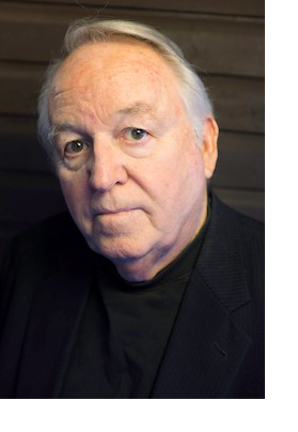Sheltering with Shakespeare

“Dakin’s ‘Sheltering With Shakespeare’ is Bard balm for the soul.”
Those are the appreciative words of Tricia Mancuso Parks, whose Creative Women New York theater company is reading every Shakespeare play and sonnet throughout this tumultuous year. She is referring to a 79-year-old much beloved actor named Dakin Matthews. While many have taken this time to learn a new language, finally watch ”The Wire,” or tackle “Moby Dick,” Matthews has used it to help others learn to love the Bard.
Matthews — who you will recognize from countless TV shows and plays (most recently as the judge in Broadway’s temporarily shuttered “To Kill A Mockingbird”) is, in fact, the go-to guy for all things Shakespeare. He “coached” Denzel Washington as the actor prepared for “Julius Caesar” on Broadway, and did the same for Ethan Hawke, before his turn as Lincoln Center’s “Macbeth.”
And now he is coaching us, via brief and succinct episodes, in “Sheltering With Shakespeare.” The project is done in conjunction with Theatre For A New Audience. Matthews drops about two a week: the latest — numbers 20 and 21 — remain up till November 5. “Dakin Matthews is the finest Shakespearian dramaturg in America,” says Armin Shimerman, who teaches the subject at USC. “His insights are a must for anyone interested in the true understanding of how Shakespeare’s mind works, and a crystalized appreciation of what he wrote.”
I confess I have always had a difficult time processing the world’s most enduring wordsmith. Though there have been productions that made him feel accessible: Richard Burton’s plain-clothed “Hamlet,” which I saw as a teen on my first visit to New York; a National Theatre production of “Othello,” transferred, in locale and time period, to the war in Iraq; Tom Hanks’ Falstaff a few summers ago, performed in a Los Angeles park; Mark Rylance’s hilarious “Twelfth Night,” which the Royal Shakespeare Company gifted Broadway a few seasons back.
“It can be very difficult,” acknowledges Matthews, “and people build up a defense mechanism about Shakespeare. You need to learn it as you would a foreign language. But once you hear it spoken well out loud, it begins to make much more sense.”
To break down my own defenses, I have been tuning in to “Sheltering With Shakespeare,” in which Matthews focuses on ever-changing Bardian components. It might be a play, a character, a phrase, even a word. For example, he digs deep into the meaning of “rhetoric” in Claudius’ first speech in “Hamlet.” He explains that “Champion and challenger are two words that have completely swapped meanings as Shakespeare used them.”
There is a fascinating discussion of Sonnet 63, in which Matthews finds new ways to interpret the use of “against,” and explains a key difference between the words “filed” (which the Bard chose) as opposed to the more generic “filled.” (Many thought it was an Elizabethan typo ... nope.) That sonnet, in particular, hits home with everyone concerned with what Shakespeare called “age’s cruel knife.” (And who isn’t?”) “To me, dear friend, you never can be old ... for as you were when first your eye I eye’d ...”
For those of us who don’t know syntax from spandex, there are real lessons here. (The former, Matthews says, may depend on leaving words out.) Though he claims the project is not meant to be viewed like a course. “Though I do my due diligence,” he insists, “having to study to do one or two a week.” Due to their brief, but loaded, content, and their pace of rollout, these are likely not for the binge generation. Some are geared to insecure yet curious listeners, others are what Matthews calls “actor oriented.”
“If you want to speak like the character, you have to think like the character,” he says at one point. And there’s nothing fancy here. ”It’s as low -tech as possible,” he says, “just me looking into my laptop with its built-in mic.” You feel like you are in Matthews’ home with him..and of course, you are. He often tells us to find the page about which he is to opine. “Just pause. Don’t worry, I’ll be here when you get back.”
And I’ll keep coming back. Who knows? Maybe one day I’ll be hunkering with Hamlet or masking with Macbeth.